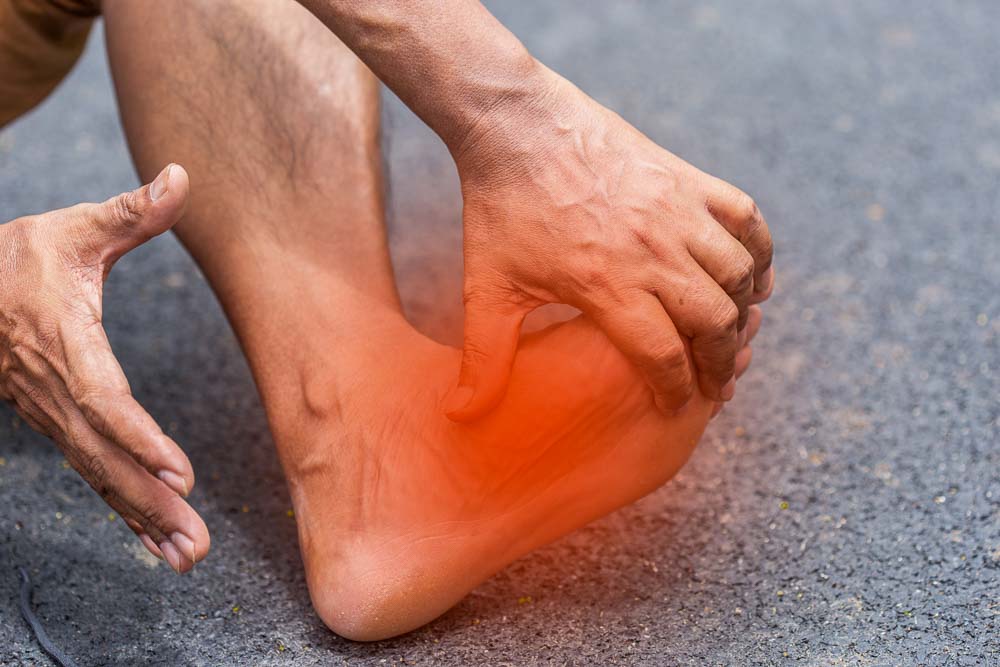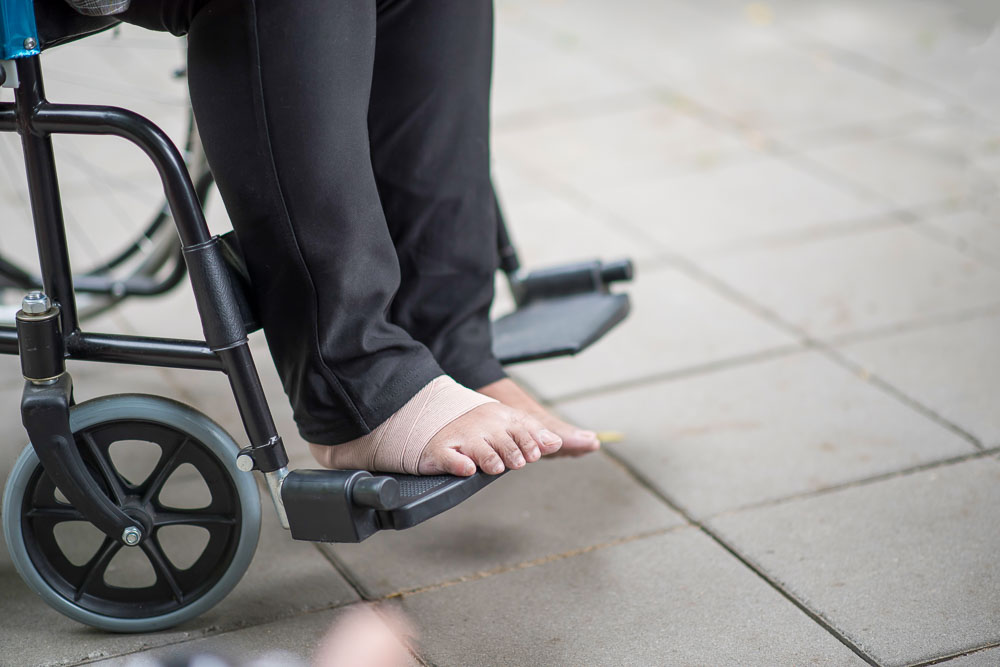Peripheral neuropathy doesn’t typically carry with it a terminal diagnosis, but it can cause some pretty substantial disabilities. The severity of symptoms experienced by a patient with peripheral neuropathy will be determined by how much damage to the affected nerves has occurred. Early diagnosis can often impact the outcome while ignoring symptoms can sometimes cause things to progress and worsen over time. Some people even lose mobility of their arms or legs when nerves are severely damaged.
What are the specifics of peripheral neuropathy and how serious things can actually get. Rest assured, there are treatment options available if you or someone that you know has recently been diagnosed with peripheral neuropathy.
What is Peripheral Neuropathy?
This condition is diagnosed when nerves around the brain and spine have become damaged by things like disease, infection, illness or trauma. Some of the most common causes of peripheral neuropathy include lupus, diabetes, cancer, arthritis and physical injury. Symptoms will vary, but the most common issues include pain, numbness, loss of balance, sensitivity to heat and difficulty walking.
 Is Peripheral Neuropathy Pain Serious?
Is Peripheral Neuropathy Pain Serious?
The seriousness of peripheral neuropathy pain will vary from patient to patient. Some people simply experience a little bit of numbness or pins and needles that are similar to when your limb ‘falls asleep’. It can happen in your arms, legs, back and face. When ignored or symptoms become worse, this leads to more serious pain that can feel like your skin is burning. Cramping and sharp pains can also occur. Some people feel like their pain symptoms are more serious at night, preventing them from sleeping well.
Dangerous Sensory Concerns
The problem with peripheral neuropathy symptoms is that they can put you in a dangerous situation. If you experience a loss of balance, this can put you at risk of falling. Falls can lead to broken bones and other serious complications. Slowed reflexes are another common symptom of peripheral neuropathy. You could touch a hot stove and not feel it quickly enough that you pull your hand away before a severe burn occurs.
Autonomic Nervous System Issues
Your autonomic nervous system controls a number of processes in the body. These nerves control things like sweating, digestion and heart rate. When damage to some of your nerves exists, this can impact how well these processes take place. People with peripheral neuropathy can experience the inability to sweat, which leads to them overheating or experiencing heat stroke. Stomach discomfort, pain and loss of bladder function can be common later on in life when peripheral neuropathy has progressed.
What Options Are There for Dealing with Serious Peripheral Neuropathy Symptoms?
Spotting the early warning signs of this condition can lead to early diagnosis and prompt medical care. This can help you control the symptoms that are present and prevent more serious ones from occurring. You also want to make sure that you’re preventing further damage from occurring to your peripheral nerves.
 Long Term Issues
Long Term Issues
If peripheral neuropathy occurs at a young age or is severe, there can be long-term complications and issues that occur. Some forms of peripheral neuropathy simply don’t have a cure, which can lead to frustration over symptom management. Amputation, wheelchairs and surgery are very likely possibilities if early-onset neuropathy is not attended to.
Decrease Sensory Experience
Peripheral neuropathy has the ability to affect three different types of nerves. This includes sensory nerves, motor nerves and autonomic nerves. Sensory nerves pass information to the brain that relays temperature, pain, burning, etc. When numbness is present or a delayed reflex time exists, this can cause a decrease in sensory experience. Some patients incur an injury and never notice that it’s there because they don’t feel any pain. If the wound becomes infected because it’s not properly being cared for, this can lead to a serious issue that can be life-threatening.
Mobility Issues
It’s not uncommon for these patients to experience decreased muscle control in areas of the body like the arms and legs. This can cause an increased risk of tripping or falling. When atrophy occurs, muscle tissue is actually lost completely. Fine movements can become difficult like picking up small objects or grasping a pencil.
Weight Loss
It’s not uncommon for weight loss to occur when peripheral neuropathy is presenting substantial symptoms. Some people lose more than five percent of their body weight because of decreased muscle mass. Some patients experience digestive upset that can impact their diet. Motor damage in the throat can also affect a person’s ability to eat.
Low Self-Esteem
Dealing with any ongoing chronic illness can lower a person’s self-esteem, and peripheral neuropathy is no different. Not being able to move around as easily or freely as you once did can decrease the quality of your life until you understand your condition and find ways to manage or heal it. Male peripheral neuropathy patients often experience erectile dysfunction as a result of their condition, and this can make them feel poorly about themselves in their marriage.
For more information on potential treatment options for your peripheral neuropathy, we encourage you to reach out to Apex Chiropractic or give us a call at (720) 328-1790. There are a number of options we can offer you based on an initial assessment and meeting with our staff.

Ready to See the Best Chiropractor in Louisville, CO?
Apex Chiropractic believes in thriving through life, not suffering in it. We believe that the activities that we want to partake in do not only desire but are necessary, just as necessary as our daily activities. In order to thrive in life and not suffer, we have to be completely in tune with our bodies. Schedule your appointment with us, today.
Like this article? Spread the word!
Related Posts
June 29, 2023
The Potential Mechanism of COVID Vaccine-Induced Peripheral Neuropathy: Numbness and Tingling in the Hands and Feet
Discover the potential mechanism behind COVID vaccine-induced peripheral neuropathy and…
June 9, 2023
Diabetic Neuropathy: Understanding the Connection Between Diabetes and Nerve Damage and How Chiropractic Care Can Help
Explore the connection between diabetes and nerve damage in our informative blog on…
April 10, 2023
Guide to Complex Regional Pain Syndrome
Complex regional pain syndrome causes substantial pain that interferes with completing…





